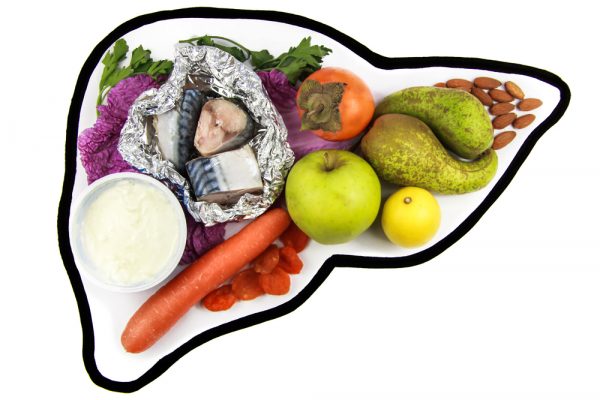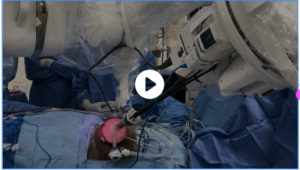Pravin Patole (Transplant Year: 2021)
Treatment : Liver Transplant
Saket Khadakkar (Transplant Year: 2021)
Treatment : Liver Transplant
Pravin Patole (Transplant Year: 2021)
Treatment : Liver Transplant
Saket Khadakkar (Transplant Year: 2021)
Treatment : Liver Transplant
Pravin Patole (Transplant Year: 2021)
Treatment : Liver Transplant
Saket Khadakkar (Transplant Year: 2021)
Treatment : Liver Transplant
Error: Contact form not found.

Fatty liver disease occurs due to excessive fat build-up in your liver. Due to this, your risk of heart disease can increase and your liver might suffer from inflammation which can get worse and lead to the scarring of liver tissue, thus increasing the risk of liver cancer. This disease is mainly of two types non-alcoholic and alcohol-induced fatty liver disease. If you are suffering from fatty liver then there is a list of food items that need to be avoided to have healthy liver and avoid further damage.
Today, this disease affects a third of adults in America and is the top contributor to liver failure. The disease can be reversed by following a fatty liver treatment diet, but there are certain food you should avoid if you have this condition.
While fatty liver itself is not harmful, it comes with some complications that can prove to be quite serious. It increases the chances of diabetes, which is a debilitating condition that can shorten the lifespan of a person. Other symptoms of the disease include nerve damage, heart disease, eye damage, kidney damage, depression, and Alzheimer’s disease. You can avoid these symptoms by taking care of your liver and by following a diet for reducing a fatty liver.

Your body breaks down carbohydrates into simple sugars, e.g. fructose and glucose. Glucose is good for your body and it acts as a fuel source. But too much fructose is harmful because it only gets utilized by the liver. Since your body cannot use all the calories from fructose, your liver is forced to store them in the form of fat. So if you fructose intake is high you run the risk of increasing the fat in your liver by 5 times.
So, a fatty liver disease diet involves cutting down on fructose and including glucose instead. This can help improve the condition of your liver.
Although the liver metabolizes alcohol, it can only process about one ounce of alcohol in an hour. So when the blood alcohol levels rise, the liver may stop functioning, causing a chemical imbalance. Continuous neutralization of alcohol by the liver damages the liver cells and results in fat deposits. It may also lead to serious conditions like inflammation or permanent scarring.
Regular alcohol consumption can harm the liver in several ways. These issues are more commonly seen in women. If you are consuming 20-40 g of liquor every day continuously for 10 years, you will start to notice the first signs of liver disease. This will tell you that it is time to seek fatty liver treatment.
There is no concrete evidence to prove that consumption of saturated fat is directly related to fatty liver disease, but animal studies have revealed that consuming excess saturated fat can harm the liver. This type of fat is commonly found in butter, red meats, and cold cuts, as well as in dairy products like ice cream and cheese. So avoid these kind of food if you have fatty liver.
Trans fat is present in bakery products and pastries and fried food such as doughnuts and french fries. So you should include food for fatty liver in your diets, such as eggs, poultry, seafood, and fish as protein sources. For vegetarians, soy products like edamame, tempeh, and tofu are available, as well as seeds and nuts. For cooking, you should use canola or olive oil instead of butter. Processed food with a long ingredients list is not generally good for the liver and home-cooked food is a better option.
Excess sodium damages the liver in many ways. This includes lowering the cell division rate, increasing the number of cell deaths, and creating deformed cells. All of these can lead to a serious condition known as liver fibrosis. Therefore, your fatty liver treatment diet should limit your sodium intake.
Inside the liver, there are collagen proteins that support the liver cells that metabolize fat and break down damaged cells. Liver fibrosis is said to occur when there is an excessive accumulation of collagen. Excess salt cause fibrosis and liver damage via oxidative stress that promotes inflammation and leads to the liver cells dying.
Studies have shown that consuming a lot of red meats and processed meats can increase the chances of fatty liver and type 2 diabetes. According to the study, people who consumed a lot of red meat were 50% more likely to get non-alcoholic fatty liver disease. The risk also depends on what cooking method is used. If you cook the meat for quite some time at high temperatures by frying, broiling, and grilling, you increase the risk of insulin resistance by 100%.
For this, you may choose to include other sources of protein in your fatty liver disease diets such as turkey, chicken, and fish.
Fatty liver disease is a serious condition that, if neglected, can lead to serious conditions that may prove to be fatal. So, in order to reverse the effects, you should follow a healthy diet as recommended by your doctor.

Transplantation is a treatment, not a cure. A kidney is an organ that filters waste from the blood and other fluids, and thereby removes it from the body in the form of urine....
Transplantation is a treatment, not a cure. A kidney is an organ that filters waste from the blood and other fluids, and thereby removes it from the body in the form of urine....